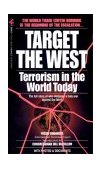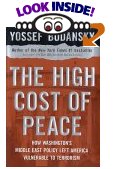|
| Home | About Kashmir Herald | |
Volume 4, No. 1 - July 2004 |
|
| Featured Article |
|
|
|
Pakistan: Terror and the Economy Kanchan Lakshman In the shadow of continuing violence in Pakistan this past week, there was a mixed bag of news emanating from the economic arena. Unfortunately, the terrorist contagion - the seemingly indiscriminate spread of radical Islamist violence - may continue to remain the key factor in what appears to be an apparently achievable economic turnaround. In the ongoing procession of violence, at least 11 persons, including seven Army personnel and three policemen, were killed and 12 others sustained injuries, when a group of seven to eight unidentified terrorists ambushed the convoy of Corps Commander, Karachi, Lt. Gen. Ahsan Saleem Hyat, near the Clifton Bridge on June 10, 2004. While the General escaped unhurt, authorities have confirmed that his motorcade was targeted when it appeared at the main road from Bath Island Mor. Separately, on June 9, security agencies launched operations against suspected Al Qaeda and Taliban fugitives in South Waziristan near the Afghan border. On day three of the military operations, the Pakistani Army backed by Air Force fighter jets, helicopter gunships and artillery, are reported to have neutralised many terrorist hideouts. Fighting in the area left at least 90 persons, including 32 security force personnel and 50 terrorists, dead between June 9 and 11. A fair amount of confusion, however, persists on the exact number of fatalities. An indication of the gravity of the situation is visible in the fact that air power was used extensively on June 11, a rarity in violence-afflicted South Asia. Four jet-fighters bombed terrorist hideouts at Shakai in the early hours of June 11 and continued to hit targets in the adjoining areas. Later, helicopter gunships reportedly flew over the area, strafing terrorist positions. At least another 26 helicopters flew overhead, with some of them airdropping army commandoes to secure the area. Some 10 choppers landed at Naway Kot and are reported to have destroyed the homes of two tribesmen, Dawar Khan and Eida Khan, who were accused of sheltering the fugitives. There were also reports that at least 40 houses used by the suspected terrorists, who reportedly include Uzbeks, Chechens, Afghans and some Arabs, were attacked from the air. Spokesperson Maj. Gen. Shaukat Sultan said the military had responded with "appropriate measures" against "miscreants" who violated the April 24-Shakai Agreement between the Government and tribesmen. The Government decided to rescind the amnesty deal it made on April 24 with tribal militant leader Nek Mohammed after he failed to honour the pledge to get the foreign terrorists holed up in South Waziristan to register with the authorities. A couple of weeks ago, Nek Mohammed is reported to have told a Jirga (tribal council) in Wana, headquarters of South Waziristan, that tribal elders should desist from the registration of 'foreigners' since they had no knowledge of the April 24-deal. Subsequently, Nek while declaring a 'war on the state' claimed responsibility for two attacks on military checkpoints in the area. And even as the troops are pursuing Nek Mohammad, he continues to converse with the international press through satellite phones, threatening to take the 'war to other parts of Pakistan'. A few hours after an interview to a Pushto language service of BBC Radio in which he said, "And wait and see what happens in the other big cities in a few days," the Karachi Corps Commander's convoy was ambushed. Incidentally, Lt. Gen. Hyat is widely tipped to be one of the three Lt. Generals who could plausibly succeed Pervez Musharraf as the Chief of Army Staff should he choose to abide by his promise to give up his uniform by the end of 2004. The unsuccessful assassination attempt on the Corps Commander is the sixth major terrorist incident in Karachi since the beginning of May. The trajectory of events thus far, indicates a linkage between military operations in South Waziristan and the attack on the Corps Commander, as also the cycle of violence in Karachi. Even as the wave of violence swept across Karachi, the 'Pakistan Economic Survey 2003-04' released in Islamabad on June 11, brought some good news. The country's economy demonstrated relatively positive trends during the outgoing fiscal 2003-04, achieving a 6.4 per cent GDP growth led by some consolidation of the manufacturing and construction sectors. On the flip-side, while the agriculture sector grew by a jaded 2.6 per cent, far short of its 4.2 per cent target, the unemployment rate grew to 8.27 per cent during the year, as against 7.82 per cent in 2003. Finance Minister Shaukat Aziz listed achievements that included, among others, a higher-than-targeted growth rate accompanied by a stellar rise in industrial production and a double-digit growth in per capita income; sharp increases in the consumption of electricity and gas; further fiscal consolidation; a further strengthening of the external balance of payment and a sharp decline in the country's debt burden. In terms of growth rate, the Minister said, only China, India and Thailand grew faster than Pakistan during the year. While a detailed scrutiny of Pakistan's economy is well beyond the mandate of this analysis, a fair measure of reality can be located in the small print: the economic costs of terror in Karachi, Pakistan's commercial capital. Karachi, which reportedly generates more than 60 per cent of Pakistan's total revenue collection, has witnessed a welter of violence in which at least 62 people have died since May 7. The instability due to terrorist violence has had an adverse affect on economic activity and, consequently, the national exchequer is reported to have suffered a loss of 40-50 per cent in its revenue collection for the month. Karachi, or mini-Pakistan as it is called, with a population of roughly 14 million and counting, currently offers an expansive compass and space for radical Islam to flourish. Although Karachi has been wracked by sectarian and terrorist violence in the past, the last couple of years had witnessed a relative improvement in the law and order situation. Events over the past five weeks, while threatening to undo the perceived calm in the metropolis, may also impact adversely on the rejuvenated Pakistani economy. Trade and industry associations of the city, as indicated say they have suffered a loss of more than 35 per cent in revenue generation in May alone, due to the violence. Adding to the economic complexity is the political volatility in Karachi, reflected in the increasing number of strikes and disturbances often organised by parties like the Islamist Muttahida Majlis-e-Amal (MMA). The Chairman of the SITE Association of Industry, Mohammad Nisar Sheikhani, disclosed that a one-day strike causes a production loss of Rupees 100 to 120 million to the industries. The SITE industrial area is the country's largest industrial estate, consisting of about 2,400 large and small industries. Except for sugar and cement units, every other type of industry is reportedly located here. Further, according to rough estimates cited by Shujauddin Qureshi, the Government suffers a revenue loss of around Rupees 1.3 billion per day in case of a strike in Karachi alone. Amidst a plethora of terrorist incidents, thousands of masons, painters, plumbers, carpenters, tillers, and ordinary workers, who scout for work on a daily basis in Karachi are among the worst affected. On the day the Corp Commander was attacked, share investors at the Karachi Stock Exchange were in a panic and the index was on a slide for most of the day's session. The stock market opened about 22 points in the red and continued to decline despite some intra-day reversal. The Daily Times reported that the market witnessed across-the-board off-loading from all quarters as investors scrambled to sell ahead of a massive decline in share values. Sajid Bahanji, analyst at Arif Habib Securities, a local brokerage, said "The market is good and stable in all respect but the security problem is scaring investors away… Investors are losing faith and trust in the system." The military regime, which is still in the process of defining Pakistan's security problematique, now has to cope with adverse economic prospects vis-à-vis the possibility of attracting foreign direct investment. Even as they were struggling to cope with the impact of the Iraq quagmire, the series of bomb blasts in Karachi and elsewhere in Pakistan, as also adverse travel advisories, have discouraged foreign investors. "Most international investors are now looking towards India or China instead of Pakistan," said Haroon Rashid, Vice President of Federation of Pakistan Chambers of Commerce and Industry. The more publicised confrontation in Pakistan is expectedly occurring between 'enlightened moderation' and radical Islam, but the economic costs of terrorist-inspired violence are the critical dynamic that will define the country's future. The escalating uncertainty with regard to the future of terrorism will impact directly on economic development and political reconstruction. Courtesy: South Asia Terrorism Portal |
 |
 |
 |
|
|
Archives
| Privacy Policy |
Copyrights
|
Contact
Us | |
||